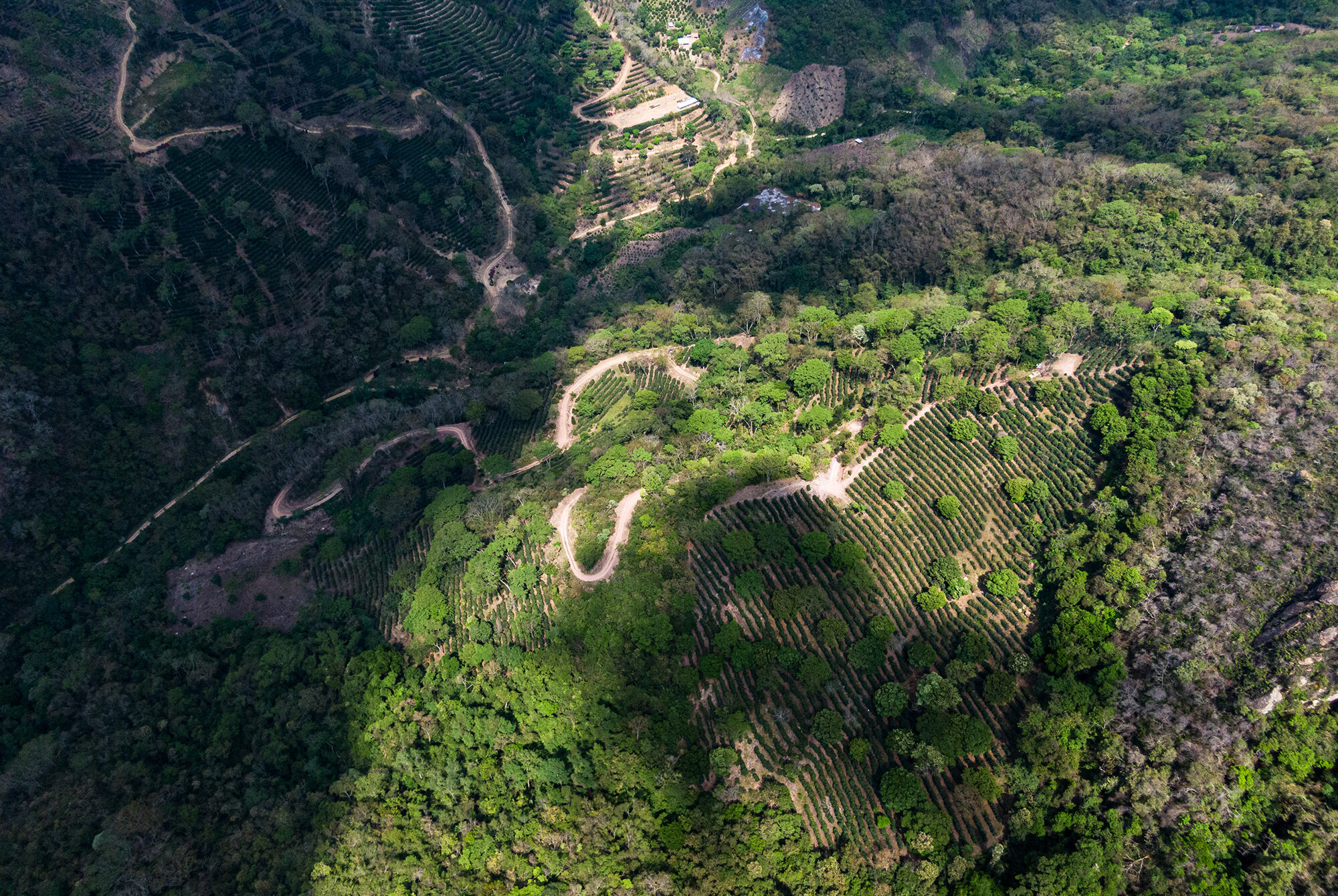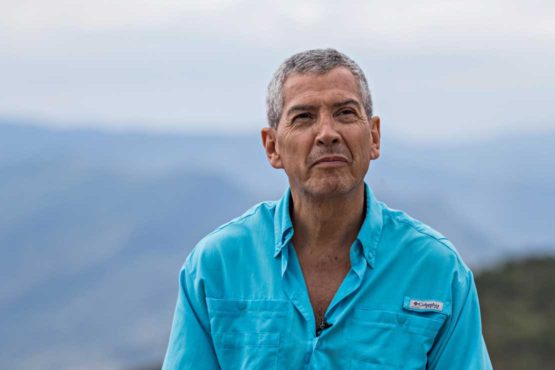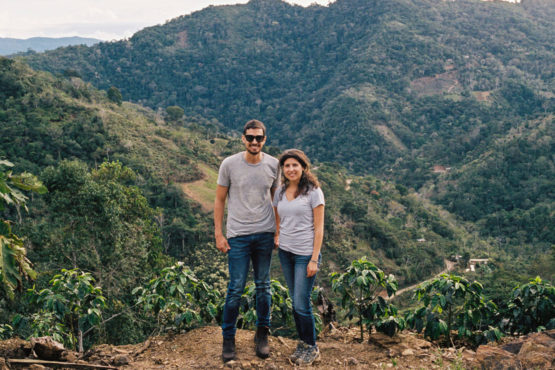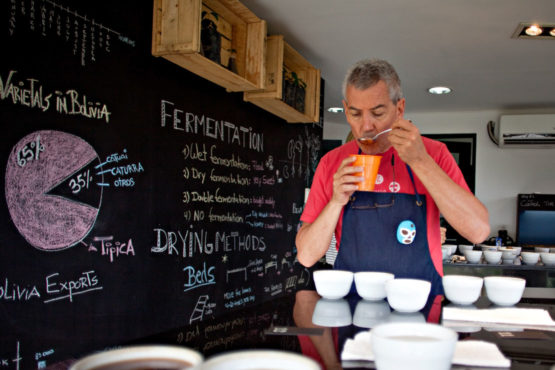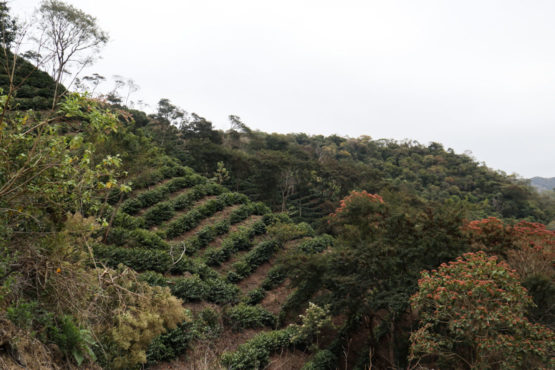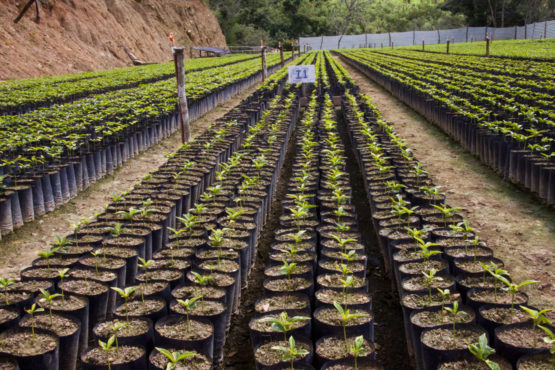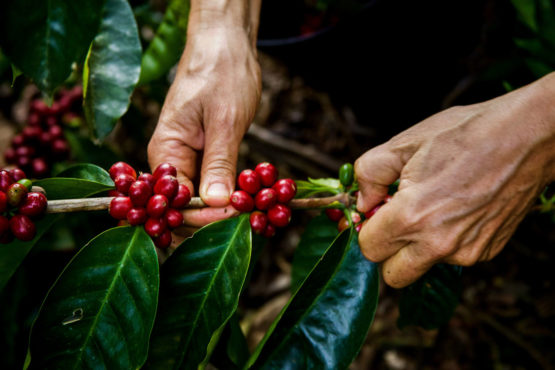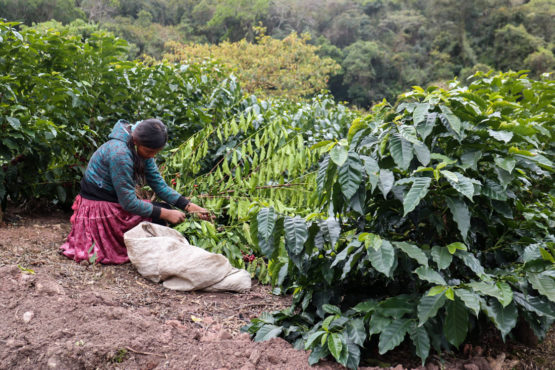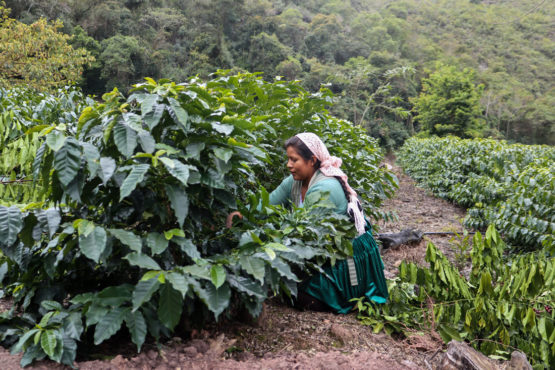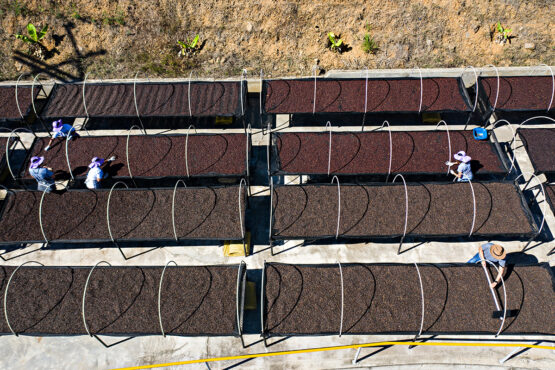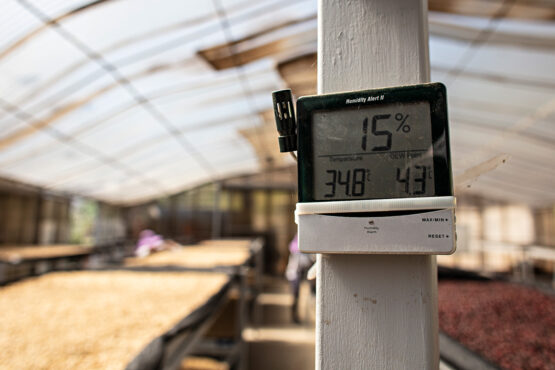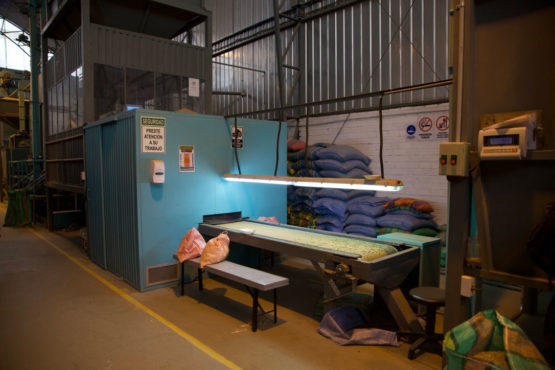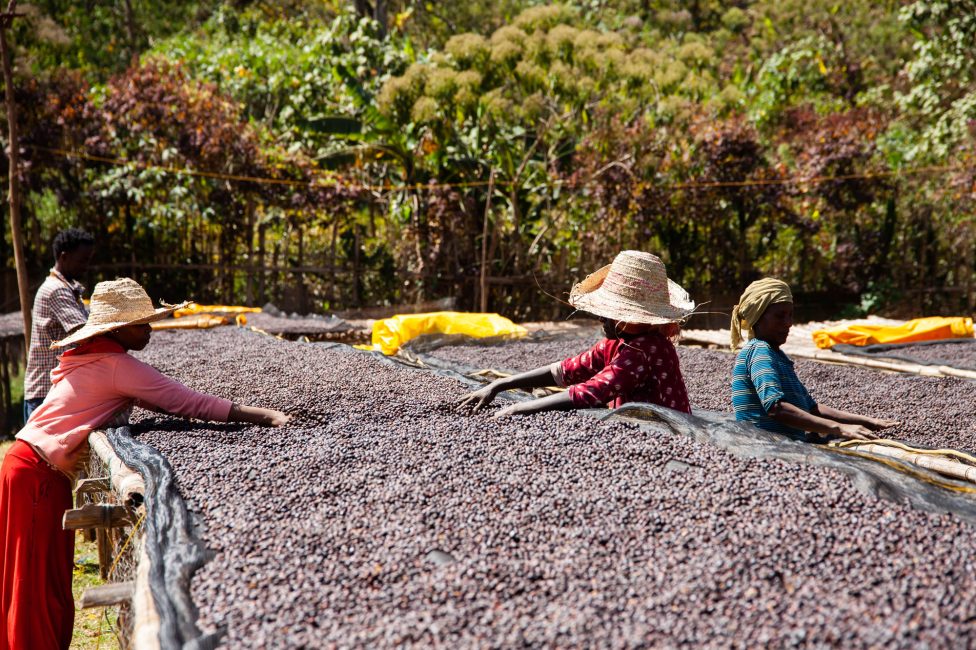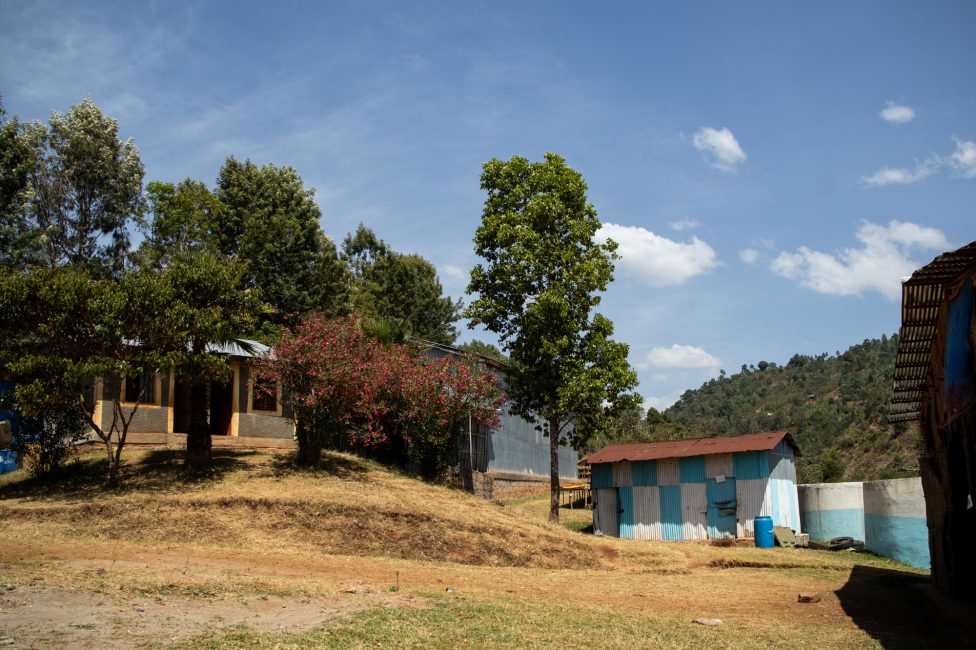Floripondio Honey
Intensely sweet and juicy, with grilled peach, cherry and dark chocolate mousse. Rose and jasmine florals on the finish.
Floripondio is located in a fairly new growing region in Bolivia called Samaipata, which is located in the eastern department of Santa Cruz, at the foot of the Bolivian Andes. The farm is owned by the Rodríguez family, who also operate an exporting business called Agricafe. Their first farms were planted in Caranavi, where their wet mill is located, but in 2012 they also started exploring the region of Samaipata. This was risky – coffee had not been produced in the region before, however, Pedro recognised the region had the right conditions to produce exceptional quality coffee, with high elevations, nutrient-rich soil and a similar climate to Caranavi’s (with the main difference being Samaipata being a little less tropical and is also drier than Caranavi).
Samaipata means ‘Rest of the Heights’, and is a small, picturesque town. A scenic road that runs along a beautiful river leads to the town centre that attracts Bolivians and foreigners alike. Historically, this region has not been known for producing coffee, but after success in growing exceptional coffee at their first farm in the region – El Fuerte – the Rodríguez family have continued investing more heavily in the region, planting four more farms, including Floripondio in 2014, and building a wet mill to process the coffee.
The Rodríguez family established Floripondio in a traditional food-producing region within Samaipata, with the lowest parts of the valley sitting at 1,600 metres above sea level, and the highest parts of the land at 1,800 metres. The region has a fairly extreme climate, as during the day the temperature is 25-30°C and at night it drops to 8-10°C. This makes the ripening process of the cherries slow down, and the sugars of the fruit are concentrated in the cherry and bean, which in turn helps produce an incredibly sweet and complex coffee.
The 47 hectare farm (29 of which are planted with coffee) is found at a staggering 1,710 meters above sea level. It has two breathtaking viewpoints: one over the spectacular Andes mountain ranges , and another over the Amboró National Park, which is considered as having some of the world’s greatest biodiversity of flora and fauna. This protected park park is located west of the department of Santa Cruz, in the so-called “Codo de los Andes”, where the western mountain range changes course to the south.
Because of Floripondio’s elevation, its tropical microclimate and its distinct soil profile, the Rodríguez family has chosen to locate their variety nursery at the farm. To date, they have planted over 50 varieties and their objective is to work out which are best suited to the land and this particular latitude and elevation. Lemon and tangerine trees separate each of the varieties planted, and their fruit is sold at the local markets. The family’s learnings have also been shared with local producers through a training program they has developed called ‘Sol de la Mañana.’ Head here to learn more about this wonderful program, and here to learn more about the incredible work the Rodríguez family and Agricafe are doing in Bolivia.
Floripondio gets its name from the Floripondio flowers (commonly known as Angel’s Trumpet in English) that are native to the area and grow throughout the farm. The flower is thought to possess some hallucinogenic properties, and legend has it that as soon as you lay down beneath a Floripondio tree you start dreaming. This is apt, as the natural scenery at Floripondio is breathtakingly beautiful and can at times, seem like something out of a dream.
HOW THIS COFFEE WAS PROCESSED
Pickers from the Samaipata community carefully handpick the coffee at Floripondio every day during the harvest. These pickers have been trained to select only the very ripest cherries and pass through the farm every day to ensure the coffee is only picked at its prime.
This coffee was carefully picked and processed on the same day at the Rodríguez family’s wet mill located at one of their nearby farms, El Fuerte. After being weighed it was carefully sorted by weight using water, and any floaters removed. Cherries were then depulped and left to ferment in exposed tanks overnight, taking advantage of the low temperatures experienced in Samaipata. Coffee was placed to dry on raised beds the following morning, for a period of 35 hours until it reached 11.5% humidity
Once the coffee was dry, it was transported to La Paz where it was rested before being milled at Agricafe’s dry mill, La Luna. At this state-of-the-art mill, the coffee was first hulled and sorted using machinery, and then by a team of workers who meticulously sorted the coffee again (this time by hand) under UV and natural light. The mill is one of the cleanest and most impressive we have seen – you can read more about it here.
